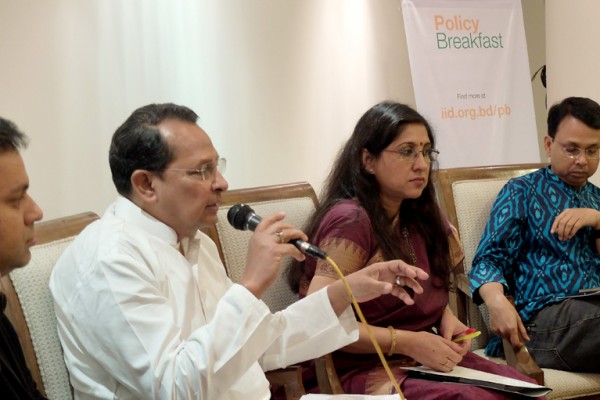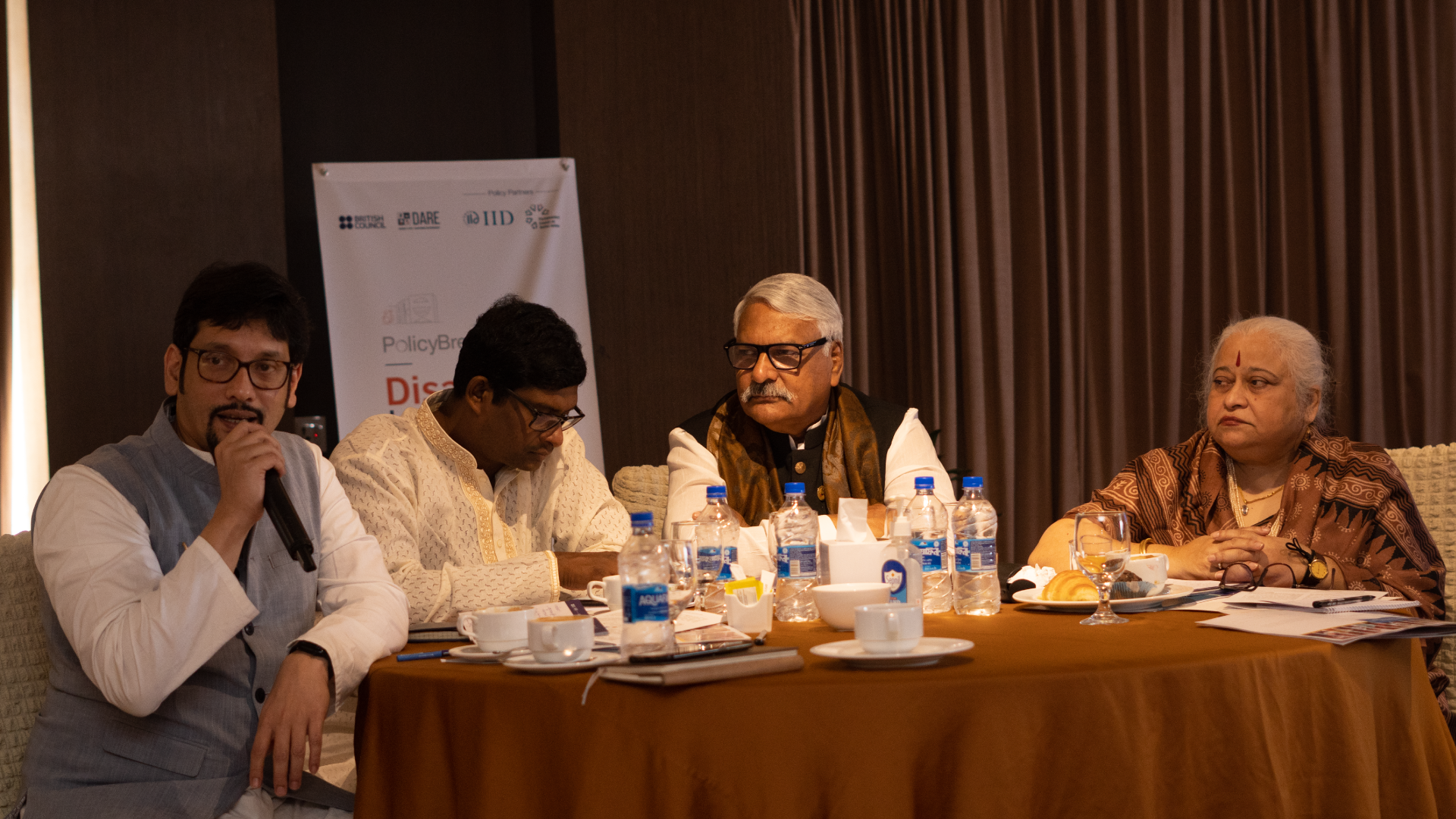Globally, jobless growth has become a major concern as fast economic growth is not creating enough jobs, resulting in a high-growth-high-unemployment situation.
Given Bangladesh’s huge demographic dividend of youth, it may well be a critical time to seek perspectives on how to better integrate skills development initiatives into national planning and budgeting, discussed the participants at IID’s 18th Policy Breakfast.
The IID Policy Breakfast on ‘Budgeting for the future: youth, skills and employment’ was held on July 08, 2018 in Dhaka in partnership with the High Commission of Canada in Bangladesh.
view more photos of the 18th Policy Breakfast
download the Agenda of the Policy Breakfast
Population of Bangladesh boasts 70 percent under the age of 35 and is a critical resource for development and acts as a natural input while skill is an acquired input. To ensure employment as an outcome, participants shared their concern regarding the need to provide proper training and placement in jobs. However, given the way economy is working, only skilled youth cannot ensure employment.
Participants discussed that formalization of informal sector is required through transition of workers and economic units from the informal to the formal economy and ensuring opportunities for income security, livelihoods and entrepreneurship.
Promotion of ‘creation, preservation and sustainability of enterprises’ and decent jobs in the formal economy can be another way to address the issue.
Expansion and collaborative effort of private sector is also essential as only 4% of job is in public sector which has pension provisions.
However, private sector growth has to take place in parallel with diversification of the economy, technological upgradation, and institutional strengthening. The World Economic Forum estimates that 85 per cent of the jobs of 2030 haven’t been created yet. As a result, we are unprepared from skills perspective as we do not know the skills requirement for the future jobs.
To address this fast moving and changing work force of the world as well as the country; think tanks, NGOs, private sector and public sector need to coordinate and counter fast pacing mechanization. Participants, NGOS and CSOs all agreed to ensure a coordinated effort to address this jobless growth in Bangladesh. Since there are multiple factors at work to ensure jobs and placing skilled labor in those jobs: collective effort of ministries, education sector, financial sector, private sector, public sector is required to address this jobless growth.
Abul Maal Abdul Muhith, MP, Honourable Finance Minister; M.A. Mannan, MP, Honourable State Minister of Ministry of Finance and planning; Dr. Ahsan H. Mansur, Executive Director of Policy Research Institute (PRI); H.E. Benoit Préfontaine, High Commissioner of Canada in Bangladesh; Barry Bristman, First Secretary (Political) at Canadian High Commission in Bangladesh; Dr. Fahmida Khatun, Executive Director of Centre for Policy Dialogue (CPD), Syed Saiful Haque, Chairman of WARBE Development Foundation; Dr. Ashikur Rahman, Senior Economist at the Policy Research Institute [PRI] among others, took part in the policy debate. Syeed Ahamed, CEO of IID moderated the session.











